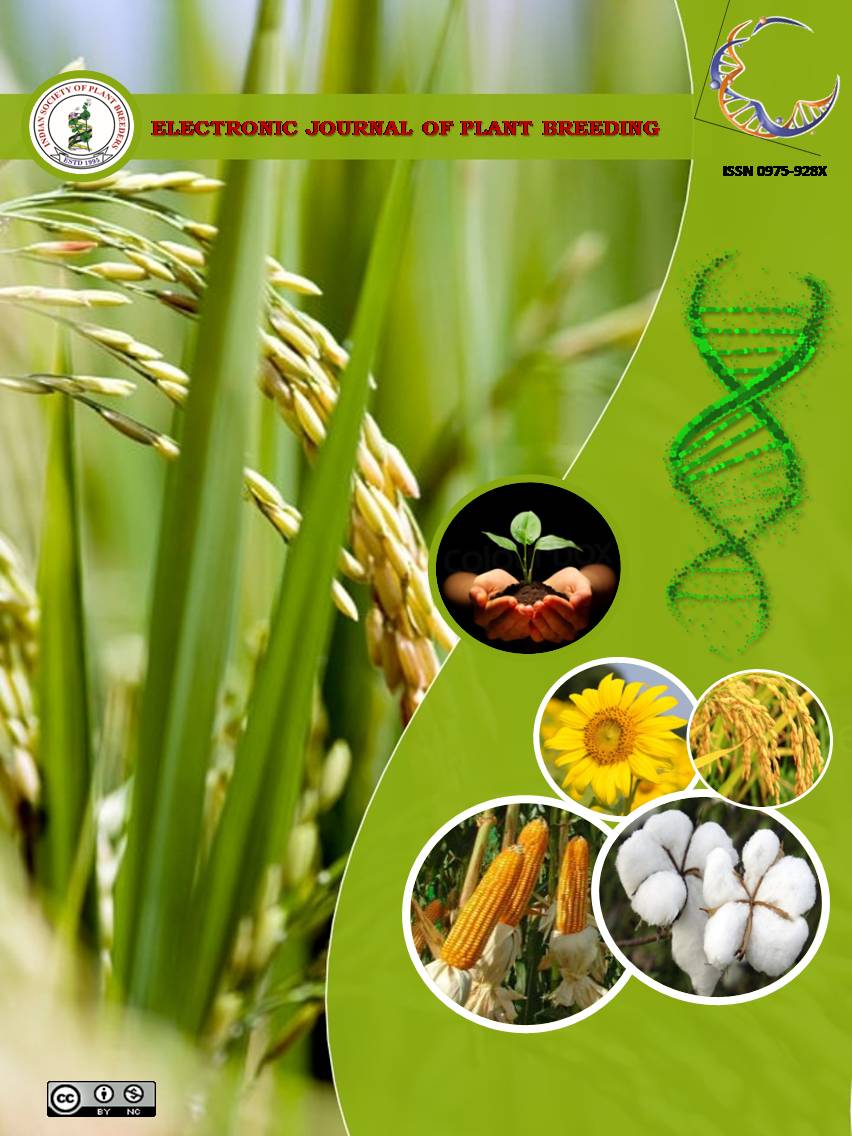Heterosis analysis in tomato (Solanum lycopersicum L.) for Lycopene, TSS, titrable acidity and Ascorbic acid
Abstract
Heterosis were estimated using ten lines and three testers and their thirty F1 combinations, crossed in line × tester fashion which were evaluated for four seasons for important quality traits viz., lycopene, ascorbic acid, titrable acidity (TA), total soluble solids (TSS) and pericarp thickness. Some of the parents having good potentiality for generating superior F1 combinations for most of the quality characters under study have been identified. The analysis of variance (ANOVA) indicated significantly higher amount of differences among genotypes for all the five characters studied. In this study, among crosses, the cross NDTVR60 × Floradade exhibited positive desirable heterosis over best parent for lycopene (60.22%) and Selection7 × Floradade (25.12%) for ascorbic acid. The cross NDTVR60 × Floradade showed the highest positive heterosis over best parent for titrable acidity (31.37%) whereas cross CO3 × Azad T5 (30.65%) exhibited the significantly highest positive heterosis over best parent for TSS and cross combination DT2 × Azad T5 (56.82%) exhibited positive heterobeltiosis for pericarp thickness.

It is certified that:
- The corresponding author is fully responsible for any disputes arising due to the publication of his/her manuscript.
- The article has been seen by all the authors who are satisfied with its form and content.
- The sequence of names of authors in the by-line is as per their relative contribution to this experiment, giving due credit to all scientists who made notable contribution to it.
- All the authors fully understand that inclusion of any other co-authors or exclusion of any co-authors is not possible once the article has been submitted to the journal.
- The corresponding author takes full responsibility for this article.
- The address of the organization where the research was conducted is given.
- The article is exclusive for this journal, and the results reported here have not been sent (and will not be sent during its consideration by this journal) for publication in any other journal.
- Authors agree to abide by the objective comments of referees and do agree to modify the article into a short note as per the recommendation, for publication in the Electronic Journal of Plant Breeding.
- If published in Electronic Journal of Plant Breeding, the copyright of this article would vest with the Indian Society of Plant Breeders, who will have the right to enter into any agreement with any organization in India or abroad engaged in reprography, photocopying, storage and dissemination of information contained in it, and neither we nor our legal heirs will have any claims on royalty.


